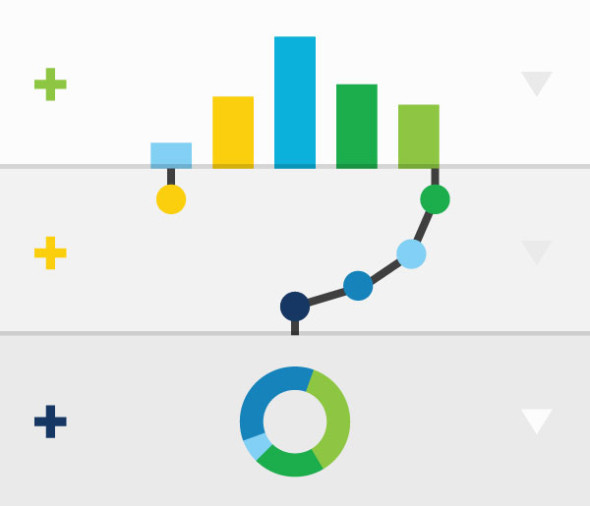What Should Brand Managers Know About Tackling SEO?
Posted in Search & Social
Next month, I will be participating in an SEO Smackdown panel sponsored by the American Marketing Association of West Michigan. The big question event organizers are asking is: What do marketing execs want - or need - to know about SEO?
There's as much misinformation out there as there are self-proclaimed gurus (ugh). So, let me dedicate this post to all brand managers and marketing executives struggling with existential thoughts like these:
- Does my website need SEO?
- How will I measure the results?
- What's a fair price?
- What should the work include?
- Do I really need "ongoing" SEO?
- How can I tell if my existing consultant is doing a good job?
- In-house - or outsourced?
- Argh, SEO is a pain! ! !
I feel your pain. Over the past 10+ years, I have developed some very opinionated ideas about how to properly implement SEO and keep clients happy.
Unfortunately, many other SEOs and digital agencies do not share the same philosophy or code of ethics. They'll be counting on everything you do not know. And oh, the things I've seen:
- Terrible lists of "strategic" keywords
- Proposals to "hand submit" your site to engines
- Shady guarantees for "first page" positions
- Keyword-stuffed content at the expense of usability
- Companies holding client analytics and ppc data hostage
- Agencies whose strategy revolves around making a big deal of minor issues (like a massive audit of H1 tags)
- SEOs that "recommend" things, instead of taking an active role
Lacking guidance, brand managers may not recognize the keywords are lazy, that submissions are a bogus tactic, that ethical SEOs don't offer guarantees, that there's a time and a place for H1 tags, or that that you actually have a right to own your data.
There isn’t an easy answer to all of these questions, but here is some feedback that you DO deserve to know:
Does My Website Need SEO?
If your website has strong design, fab branding, a thoughtful UI, and either lots of existing content or opportunities for adding more, then yes: your website needs SEO.
However, if you have an anemic digital presence that lacks domain authority or quality branded content, maybe you should mosey over to my other post about how to Build Something Excellent.
How will I measure the results?
Having an analytics program is a good start! Here at FINE, we rely on Google Analytics. You'll need to know how traffic is doing, if you're making money, and if people are taking desired actions:
- Organic performance vs past month or year
- Top organic landing pages
- Organic keyword insights (a pox on you, not provided)
- Organic sales / product performance
- Organic conversions
(Contact page, lead generation forms, mailing list signups, etc.) - Organic events
(Social media shares, video plays, PDF downloads, etc.)
Bottom line? Ideally your reports will not only include similar data, but your agency should also customize and discuss reporting with you so it's meaningful.
What's a Fair Price?
This Search Engine Watch post goes into some helpful details about the costs of SEO.
A fair price is not going to be the lowest price. In fact, you should beware of low-cost services. FINE engagements start in the "several thousands of dollars" range, and go up from there depending on complexity and timeline. We don't cut many corners around here: the results we get for our clients reflect this.
Instead of asking yourself if you can afford SEO, you might want to instead consider if you can afford NOT to invest in it:
Building quality content alone is never enough. If your amazing content isn’t visible to its full extent, **then you are leaving money on the table. **Your upcoming event isn’t highlighted; your recipe won’t show an image; your flash is invisible; your pagination is a black hole; your ajax is a roadblock; your search form is useless; and your Chinese-language translation looks like Elvish. Responsible, effective SEO can help your website perform to the best of its potential in search. The before/after numbers prove this, so don’t get left behind.
What Should The Work Include?
Ooh, this is a tough one as it really depends on your website. The type of work we do can vary widely from client-to-client. Their websites aren't the same: why would their SEO approach be?
In general, you want your agency to be paying attention to three things: Domain Authority, Site Architecture, and Content. I'd hope the plan would at least include:
- A thoughtful Site Analysis done by a real person (not a machine-generated report).
- Customized Keyword Research: the SEO should be asking you tons of questions about your brand and your goals.
- A major focus on Website Copy and Content, from hand-written* (yes, hand written!)* title tags to custom keyword integration, content strategy, copywriting, and more.
- Attention to Domain Authority - do you need more? How will you build more high-quality links to your website?
- A lot of really specific things customized just to you, all about you.
Do I Need "Ongoing" Monthly SEO?
This is generally influenced by how large your website is, and/or how much work there is to be done. Every site should have the opportunity to benefit from SEO: sometimes, a shorter term contract is the easiest way to get the ball rolling.
If a consultant says that you'd "better keep up with the Google Algorithm or else", then run from them as fast as you can. Monthly plans shouldn't be about fear of losing traffic: instead, it's about the potential to build even more than you already have.
You should always know what you're getting each month - in particular, what active, hands-on work that was implemented in order to help your website.
The problem here is some people get into situations where ongoing work isn't actually DOING anything besides:
- "Monitoring" your keywords
- "Monitoring" your website traffic
- "Keeping Current" with industry trends and algorithms
- "Evaluating Performance"
- Sending over "Critical Suggestions and Recommendations" for you to implement
Okay, so basically, they're just clicking around analytics and then foisting stuff off on you to implement instead of actually HELPING you or making sure stuff gets done. We seem to be bleeding over to the next question here:
How Can I Tell if My Existing Consultant is Doing a Good Job?
I would start by listening to your gut. A good SEO agency, above all, cares about client rapport and satisfaction. Your point-of-contact should seem pretty invested in and responsive to you, responding quickly to emails and always pointing out different stuff they're working on. If you don't have this, chances are you may be experiencing a bit of indigestion.
The next thing I would look at is your analytics traffic, and reports about what active work is being done. Hopefully your provider is already proactively sending you information about this, but in particular, you are interested in:
- Organic Traffic Increases month-over-month and year-over-year
- Organic Sales / Conversion Increases month-over-month and year-over-year
- Specific details about ongoing initiatives that they are helping to implement on your behalf
Should I Hire In-House, or Outsource?
I've worked in-house as well as agency-side: both options can bring great results. It depends on many things, including:
- Budget: Sometimes outsourcing can be a lot cheaper than hiring in-house - or vice versa.
- Talent & Expertise: With an agency, you benefit from combined expertise that can equal decades upon decades of experience, whereas lone SEOs may not have as much of a support network. It ultimately depends on the talent and expertise of the individual.
- Size of Website: Sometimes it really makes sense to bring more work in house when SEO is literally a full-time job for one or more people, because there's so much content to manage.
A favorite scenario is where an in-house manager(s) works in tandem with outside consultants, holistically integrating all digital marketing efforts: SEO, PPC, Email, Content Strategy, Branding, and more.
Some of my most successful projects have been where I've been working agency-side along a fantastic team of in-house digital marketers. Ultimately, it's a group effort.
Argh, SEO is a Pain.
Oh man, I know. Why did I choose to make this my sole career focus again?
Because I've been rewarded, time and again, by seeing clients get fantastic results.
SEO is hard work: especially if you're taking the time to get it right. You'll need help from consultants, developers, copywriters, and more to implement recommendations, coordinating across various disciplines and teams to improve content - and in turn, performance.
Luckily, a good consultant should be able to remove smoke, mirrors, and other obstacles along the way. I hope this post has helped outline some useful tips about how to get started on the journey. Good luck.
SaveSave

